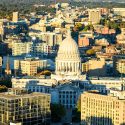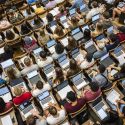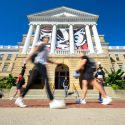Photo gallery UW–Madison spends a day at the Wisconsin Capitol
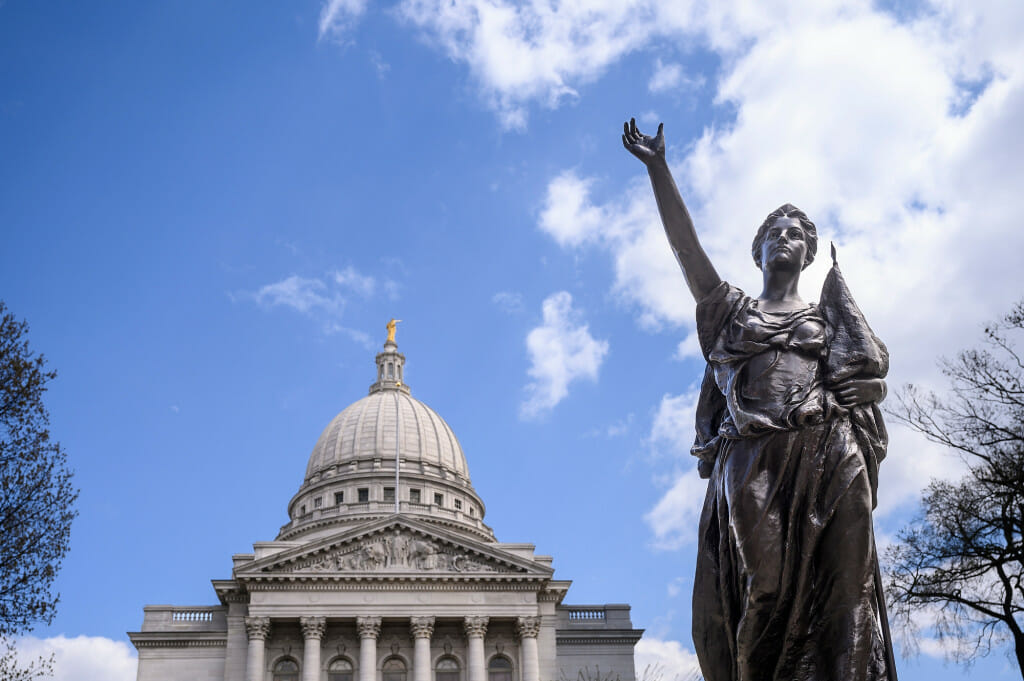
The bronze statue “Forward” reaches toward the sky outside the Wisconsin State Capitol on April 26, while inside, UW–Madison graduate students, faculty and alumni gathered for UW–Madison’s Day at the Capitol, an annual advocacy and outreach event held for legislators and staff. Photo: Althea Dotzour
University of Wisconsin–Madison alumni, students and faculty gathered in downtown Madison on Wednesday, April 26, for UW–Madison’s Day at the Capitol, sponsored by the Wisconsin Alumni Association. Attendees spent the day conversing with members of the public, lawmakers and their staff to highlight the many ways UW faculty, students and alumni contribute to Wisconsin’s social and economic development through education, research and athletics.
The annual event featured discussions with state legislators, graduate student research projects, flash talks by UW–Madison faculty experts, lunchtime remarks from Chancellor Jennifer L. Mnookin and a closing event with Director of Athletics Chris McIntosh. The event comes amid this year’s biennial budget cycle and provides an opportunity for UW–Madison supporters to share how the university has impacted their lives and communities.
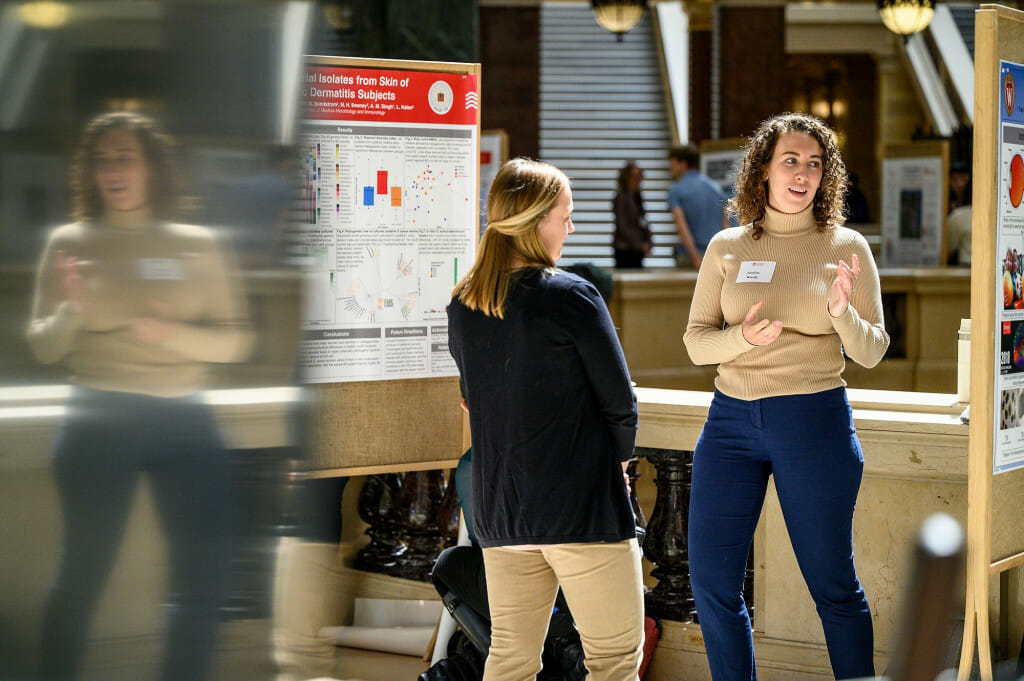
At right Jocelyn Woods, graduate student in the Department of Animal and Dairy Sciences, describes her poster “Tail docking: Considering the long and short of it for sheep welfare” to graduate student Shelby Kottke-Weaver during the UW–Madison's Day at the Capitol on April 26. Photo by: Althea Dotzour
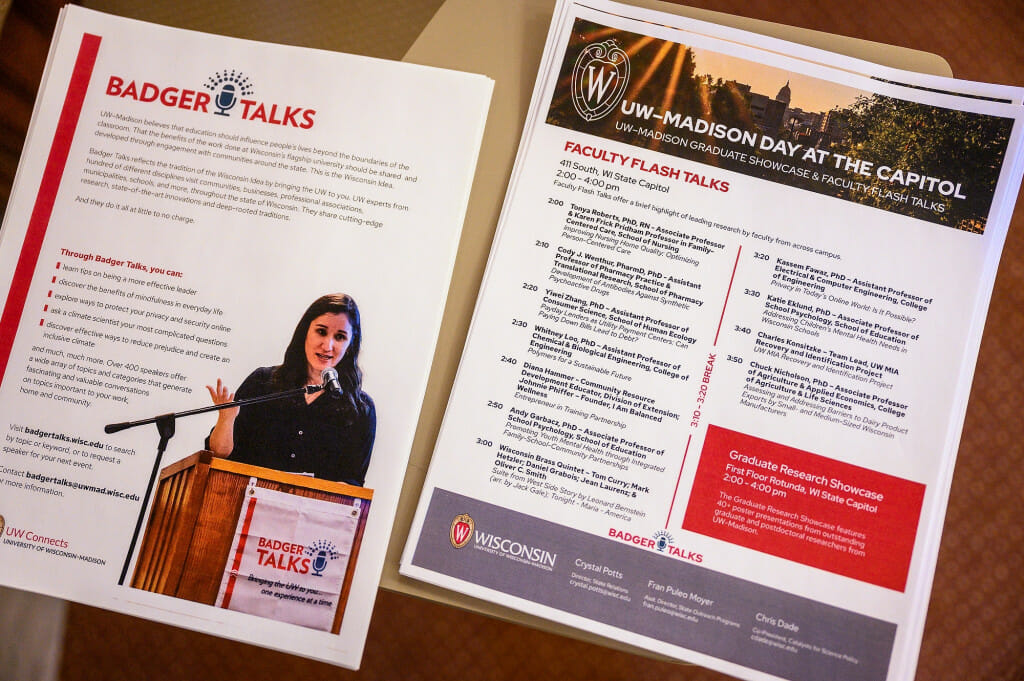
The day included a full slate of UW–Madison faculty flash talks, presented by Badger Talks in partnership with UW State Relations. The schedule featured an array of experts, spotlighting topics from engineering and agriculture to music and health care. Photo by: Althea Dotzour
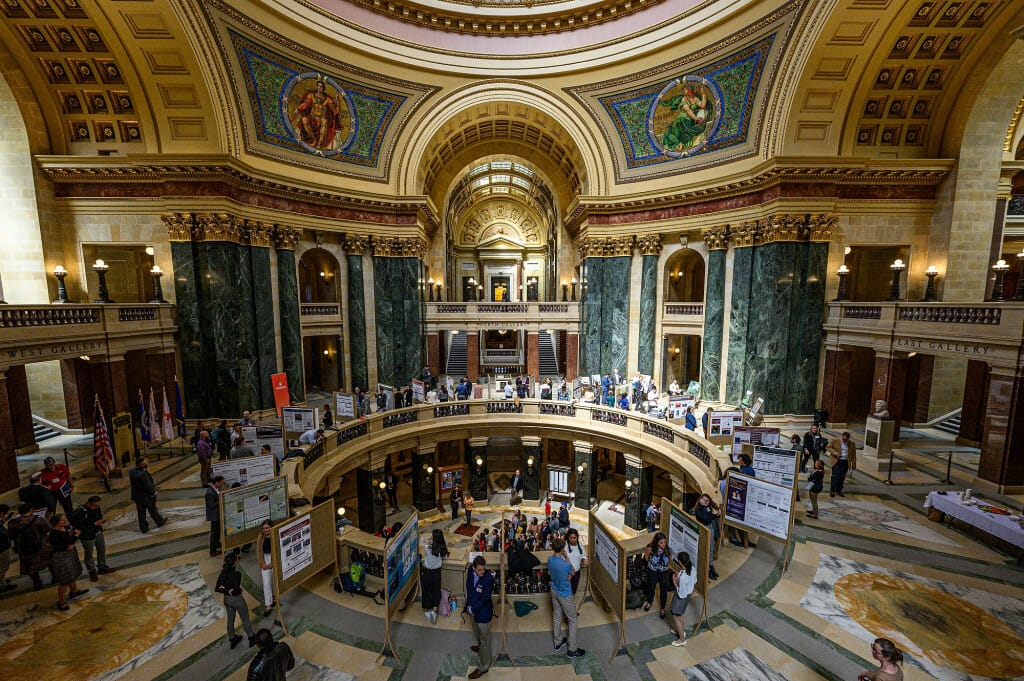
The day included a Graduate Research Showcase held in the Capitol rotunda, organized with UW State Relations and Catalysts for Science Policy (CaSP). “Here, everybody's interested in the same kind of end goal, which is showcasing the research happening at UW and giving back our knowledge to people that aren’t in the class buildings with us,” shared Shelby Weaver, operations director for CaSP and a graduate student in psychology. Photo by: Althea Dotzour
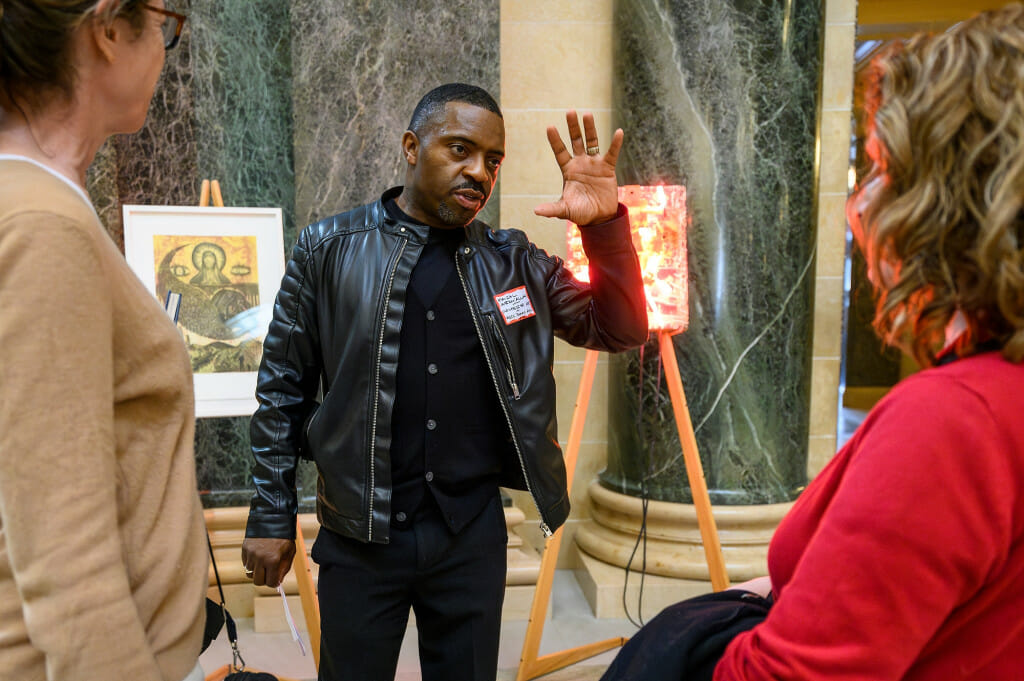
Faisal Abdu'Allah, professor of art and associate dean of art, speaks to attendees about the artwork on display in the rotunda. Photo by: Althea Dotzour
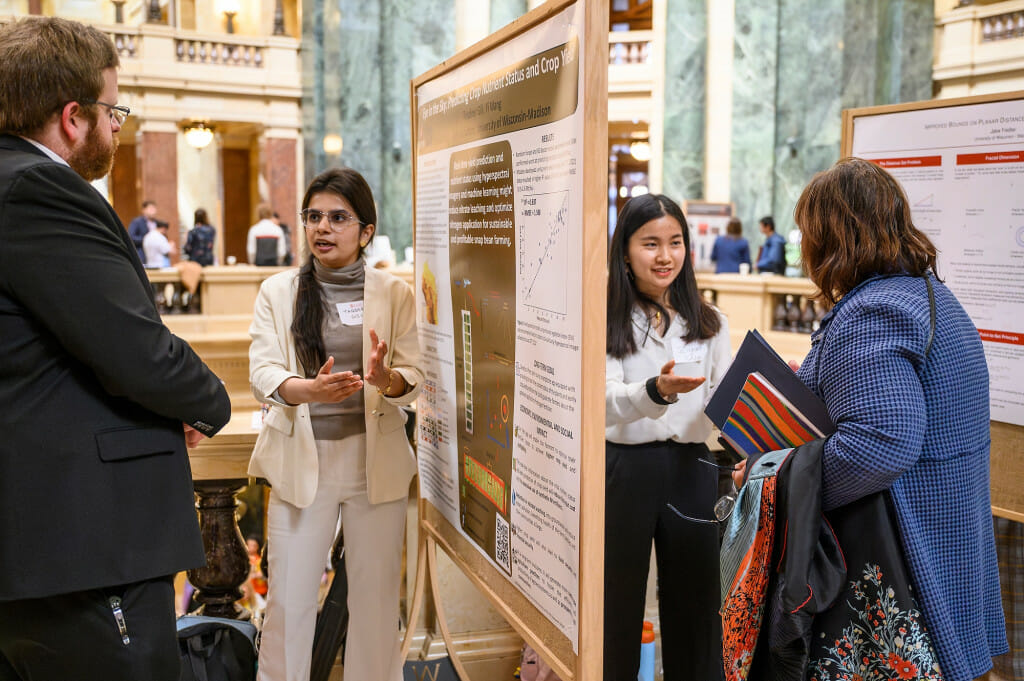
Graduate student Taqdeer Gill, second from left, explains how hyperspectral imagery and machine learning can lead to more sustainable, profitable snap bean farming in Wisconsin while her neighbor, civil and environmental engineering graduate student Ziyan Wu, describes her poster about the detection of microplastics in lake water. Photo by: Althea Dotzour
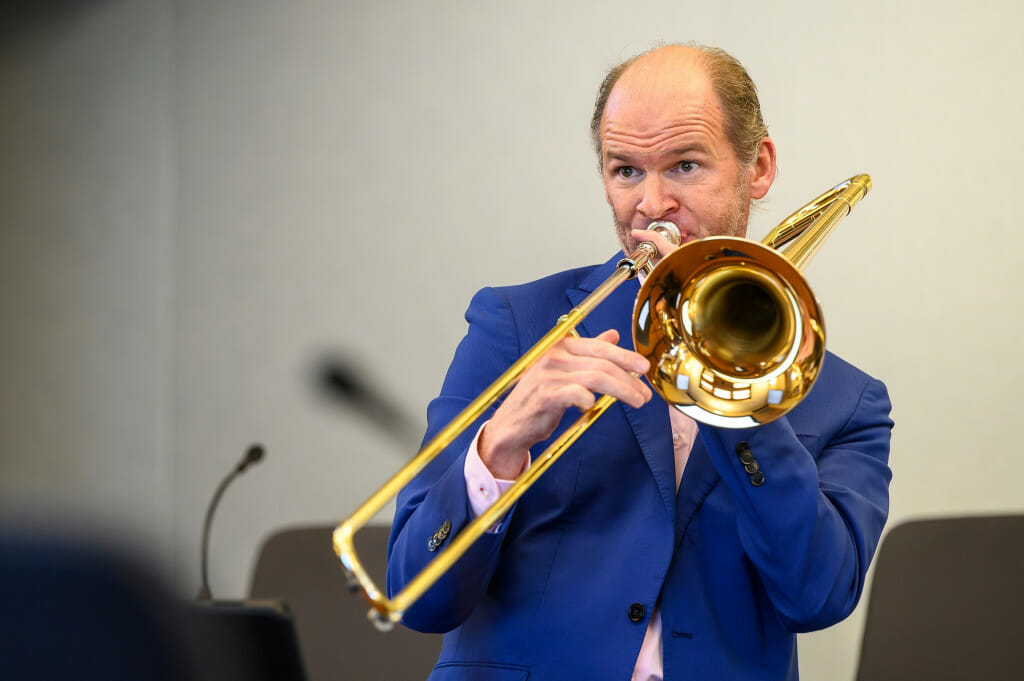
Mark Hetzler, professor of trombone, performs songs from “West Side Story” along with the Wisconsin Brass Quintet as part of the faculty flash talks. Photo by: Althea Dotzour
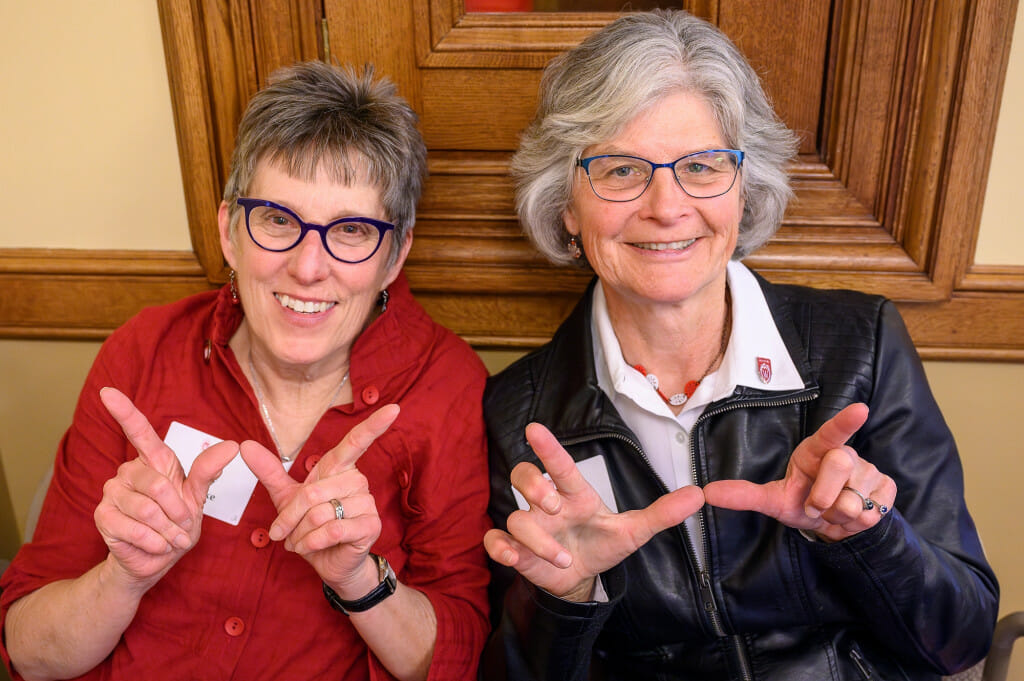
“It’s good to see Badgers all over the place.” From left to right, Nancy Schake and Diane Opperman, members of the Wisconsin Alumni Association, pause from their meetings with lawmakers to throw a W and listen in on faculty flash talks. Photo by: Althea Dotzour
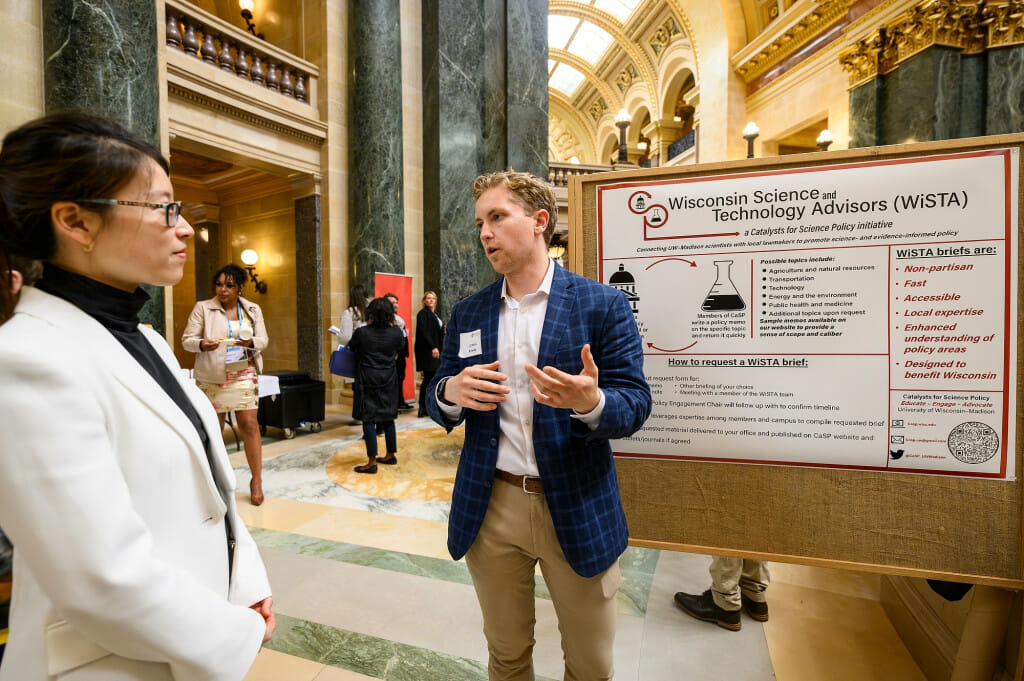
At right, Catalysts for Science Policy Co-President Chris Dade speaks with a member of the public during the Graduate Research Showcase. “As part of the Wisconsin Idea, that land grant mission, the work that we're doing on campus should be translated outside the boundaries of campus, not only to benefit citizens but inform policymaking,” noted Dade. “By organizing this event, we allow graduate students to bring some of that research and insight and maybe even new problems that policymakers haven't even thought a lot about, right here in the Capitol.” Photo by: Althea Dotzour
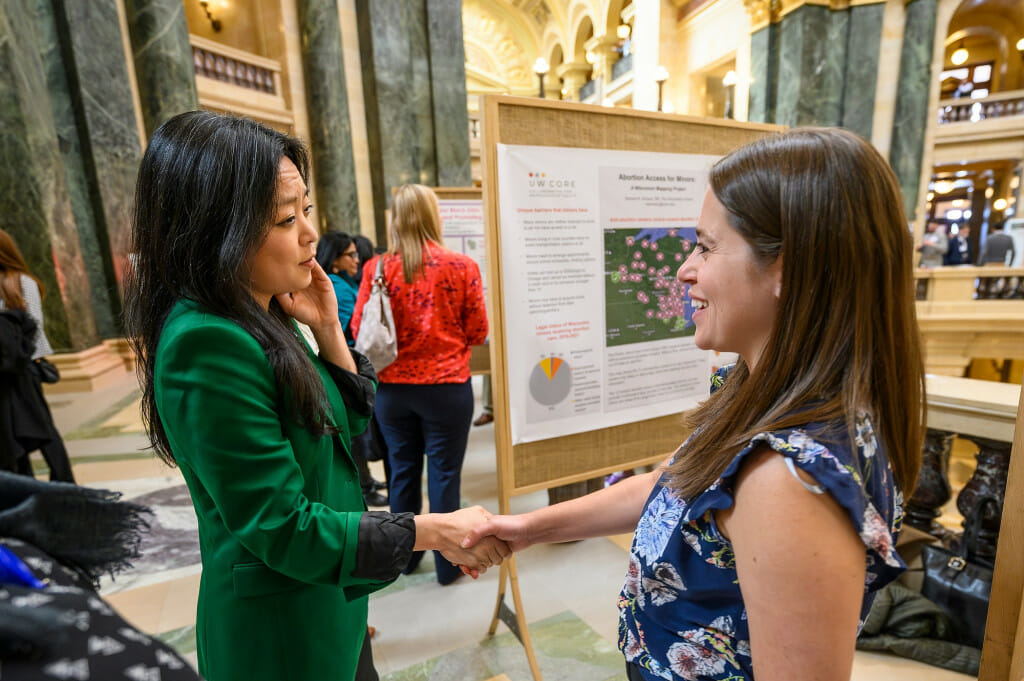
At left, Wisconsin State Assembly member Francesca Hong greets Barbara Alvarez, a graduate student in the Information School who presented a mapping project on abortion access in Wisconsin. Photo by: Althea Dotzour
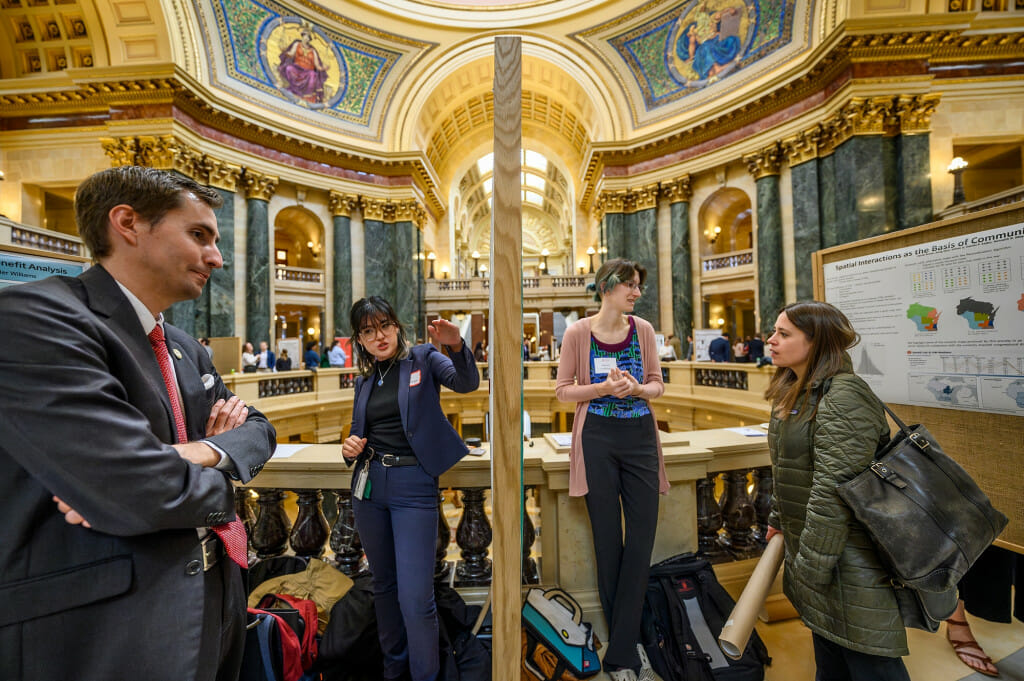
Graduate student Mallory VanMeeter, second from right, discusses her exploration of data to understand the experience of young people living with housing instability or homelessness. “My goal is to of see what kinds of arrangements are safe and supportive,” commented VanMeeter. “But I'm trying to also look at the [instances] which are with caring adults, who might be dealing with their own housing instability or financial barriers that get in the way of providing hospitality and identifying what those barriers are.” Photo by: Althea Dotzour
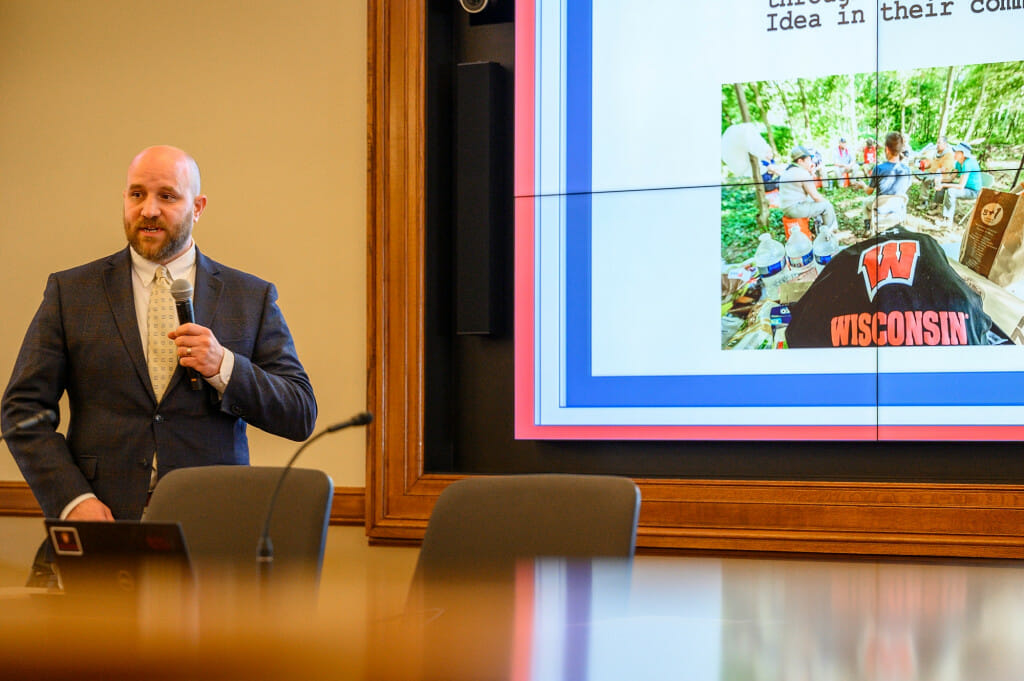
Charles Konsitzke, team lead of the UW Missing in Action Recovery and Identification Project, gave a flash talk about the multi-partner project, which works to recover, identify and repatriate MIA U.S. service members. The project conducts annual field excavations and year-round research assistance to families of missing service members. “We're a blend of students, faculty volunteers and off-campus volunteers,” noted Konistzke. “We have 80,000 U.S. service members missing from this point from World War II, and on. Of that, 1,500 of them are from Wisconsin. This is a state situation.” Photo by: Althea Dotzour
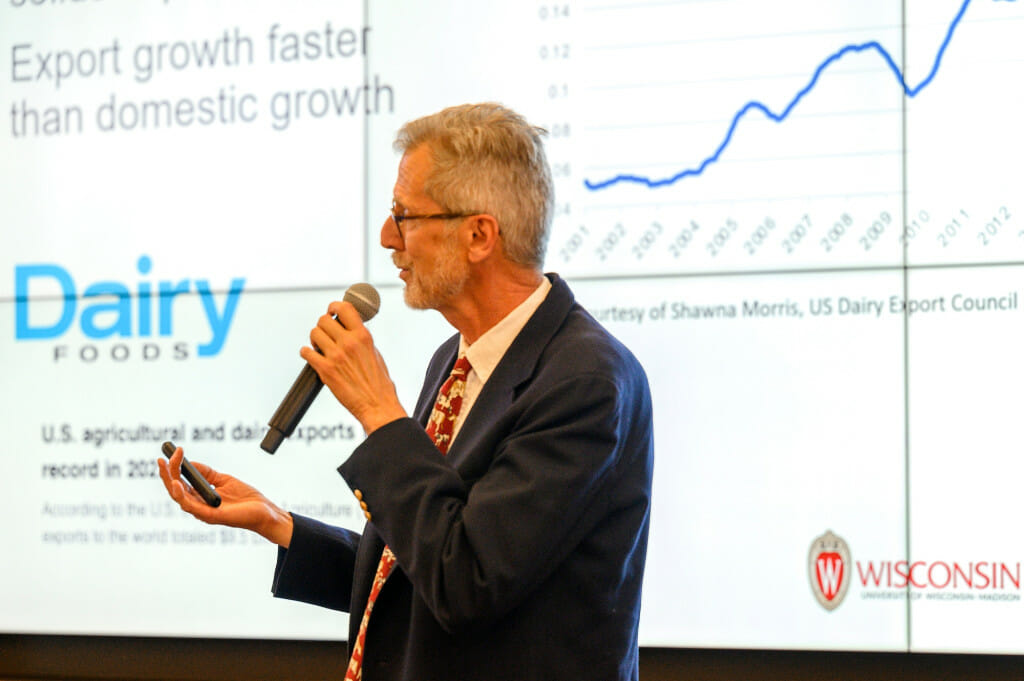
Chuck Nicholson, associate professor in the Department of Agricultural and Applied Economics, delivers a flash talk addressing barriers to dairy product exports. “Most of the things we produce here in Wisconsin are not the major export product categories for the United States,” noted Nicholson. “We want to document the potential barriers that companies are facing and identify and evaluate and try and recommend strategies that might overcome them.” Nicholson’s work is supported by the Dairy Innovation Hub. Photo by: Althea Dotzour
Tags: state budget, The Wisconsin Idea

